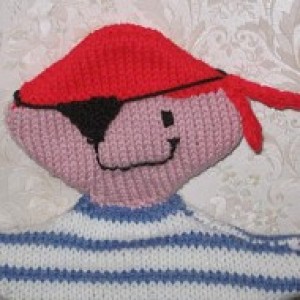Remembrance
In the trenches of the First World War, my grandfather received a foot full of shrapnel. His injury was a 'Blighty one' and it saw him return safely to England via a stay in a French sanitorium. The soldier standing at his side was killed by the same bomb. If my grandfather hadn't survived, my mother would never have been born and I wouldn't be blipping.
My father was an RAF officer in the second world war, and worked as a Fighter Controller. This involved periods of intense activity, spaced by many hours on standby. Using radar, he directed British fighter pilots to help them engage advantageously with the enemy. He had seen Hitler speak in 1936 at the Olympics in Berlin, knew there was a war coming and volunteered as a pilot in 1939. Even so, it can't have been easy for a peaceable man with a deep fondness for Germany and its people. After the war, as a grammar school master, he introduced German to the curriculum and set up what became a long-lasting annual exchange with a German school. I am friends with his German colleague's children; one of them is godmother to my own daughter.
It was essential that he did not fall asleep in front of the screens during a lull in activity. To help stay awake, he took up a pastime; stitching pictures in wool. After he retired, he and my mother enjoyed a number of holidays abroad, holidays that they couldn't afford in their youth. On their return, my father would choose a photograph and transfer the scene in crayon to canvas. Then he worked it into an original tapestry. The house walls were soon, and still are, covered in happy memories of their holidays.
Some years before he died, he asked if I'd like him to do a tapestry of a favourite place. I provided him with a photo of the canal path in Hopwas, the Staffordshire village where we lived at the time. I put it in a see-through cellophane envelope to protect it. But, with cataracts developing, my father's eyesight wasn't as good as it was. If you look carefully at the dark bank on the left of the canal, you'll see one pale stitch. When I'd taken the lovely picture home, this spot surprised me, so I looked afresh at the photo. On the cellophane, a splash (most likely of tea) had left a tiny spot, which my father had faithfully incorporated into the picture.
My father lived to the age of 87. All RAF aircrew were volunteers, with an average age of 22. Many of those with whom he joined were killed. Of those who served with RAF bomber command, almost half died in action.
And so it continues but, in some ways, it is harder today than during the world wars. Only a small section of society is directly affected by the death of soldiers; cameraderie is mostly limited to servicemen and women. Let's remember their bravery with pride.

Comments
Sign in or get an account to comment.


